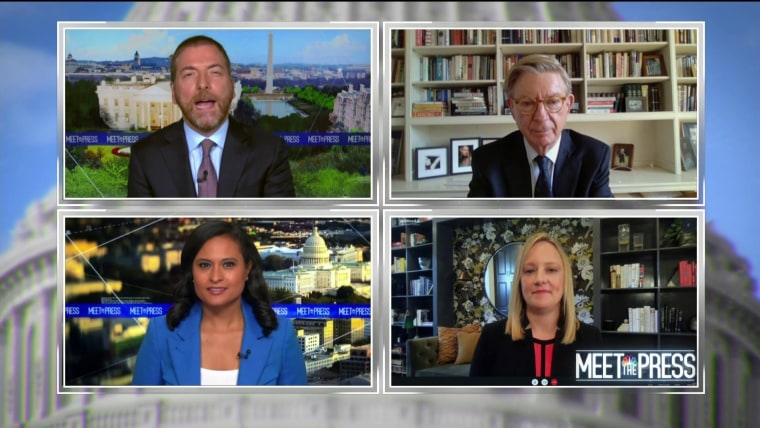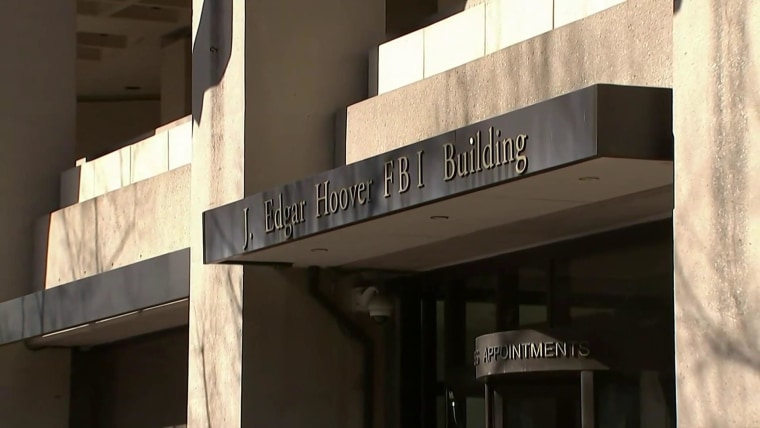WASHINGTON — In a thousand-page bipartisan report released Tuesday, the Senate Intelligence Committee said the Trump administration obstructed its investigation with “novel claims” of executive privilege. It painted a portrait of a Trump campaign eager to accept help from a foreign power in 2016.
The Senate report, the most detailed account to date of the Trump campaign’s embrace of Russian election interference, also asserted that the allegations that Ukraine interfered in the election — which President Donald Trump perpetuated — originated with Russian intelligence agencies.
The report highlighted some never-before-seen evidence about Trump and Russia, including three allegations of potentially compromising material relating to Trump’s private trips to Russia that were unconnected to the dossier compiled by former British spy Christopher Steele.
“Separate from Steele’s memos, which the Committee did not use for support, the Committee became aware of three general sets of allegations” involving women, the report said, two of which described a tape. No such allegations were confirmed, but the finding lent new credence to at least one claim in the widely discredited Steele dossier.
The committee endorsed the view of special counsel Robert Mueller and the Roger Stone prosecution team that the Trump campaign eagerly embraced Russian help in 2016, and considered the hacked emails its “October surprise” even though campaign officials knew the material was stolen by Russian intelligence.
“While the GRU and WikiLeaks were releasing hacked documents, the Trump Campaign sought to maximize the impact of those materials to aid Trump’s electoral prospects,” the report said. “To do so, the Trump campaign took actions to obtain advance notice about WikiLeaks releases of Clinton emails; took steps to obtain inside information about the content of releases once WikiLeaks began to publish stolen information; created messaging strategies to promote and share the materials in anticipation of and following their release; and encouraged further theft of information and continued leaks.”
The committee said it also developed evidence that Trump campaign chairman Paul Manafort may have been connected to the Russian operation to steal and leak Democratic emails. If that had been proven in court, it would have constituted “collusion,” by any definition, but no such charge ever was brought. Manafort was convicted of fraud and tax charges unrelated to Russia,
The committee found that the Trump transition exposed itself to Russian influence.
“Russia and other countries took advantage of the Transition Team’s inexperience, transparent opposition to Obama Administration policies, and Trump’s desire to deepen ties with Russia, to pursue unofficial channels through which Russia could conduct diplomacy,” the report said. “The lack of vetting of foreign interactions by Transition officials left the Transition open to influence and manipulation by foreign intelligence services, government leaders, and co-opted business executives.”
It added, “Russian officials, intelligence services, and others acting on the Kremlin’s behalf were capable of exploiting the Transition’s shortcomings for Russia’s advantage. Based on available information it is possible — and even likely — that they did so.”
On Ukraine, the report said that Russian-government operatives from late 2016 until at least January 2020 consistently spread “overlapping false narratives which sought to discredit investigations into Russian interference in the 2016 elections and spread false information about the events of 2016.”
The report said that Manafort associate Konstatin Kilimnik, a Russian intelligence officer, “almost certainly helped arrange some of the first public messaging that Ukraine had interfered in the U.S. election.”
In 2017, the report said, “other Russian-government proxies and personas worked to spread the false narrative that Ukraine interfered in the U.S. election.”
The committee “identified no reliable evidence that the Ukrainian government interfered in the 2016 U.S. election.”
The White House did not immediately respond to a request for comment.














